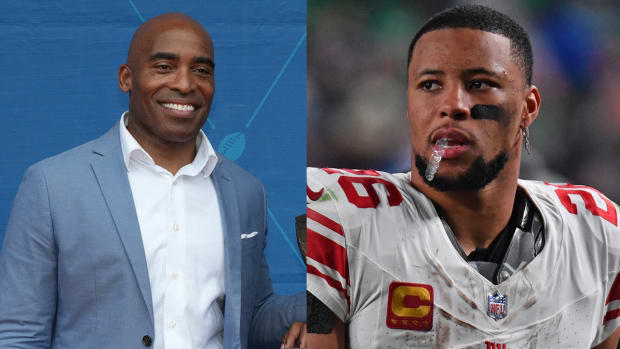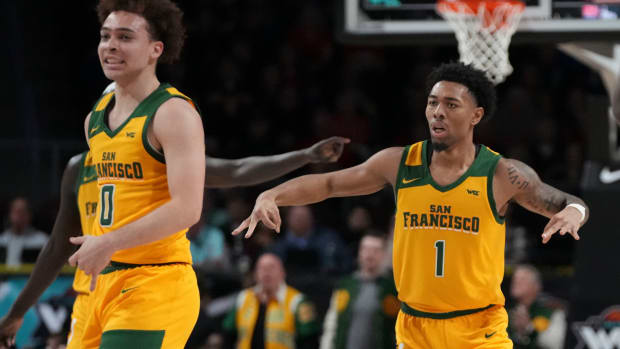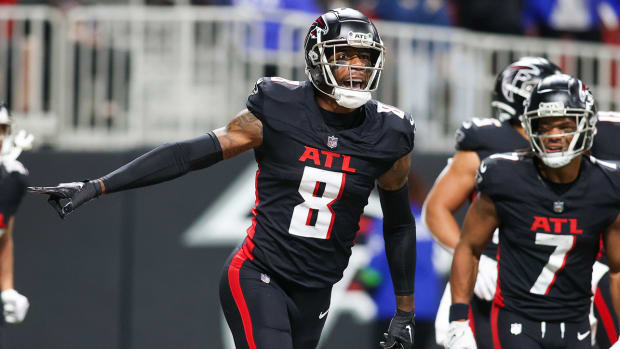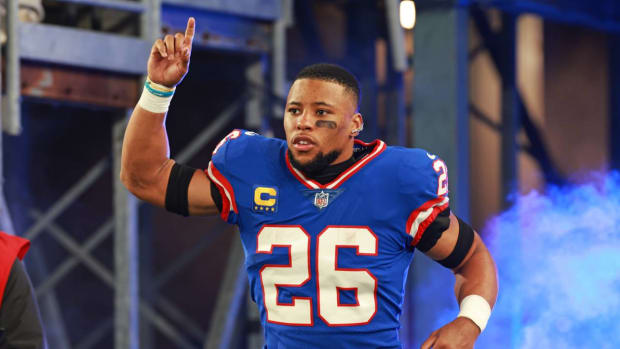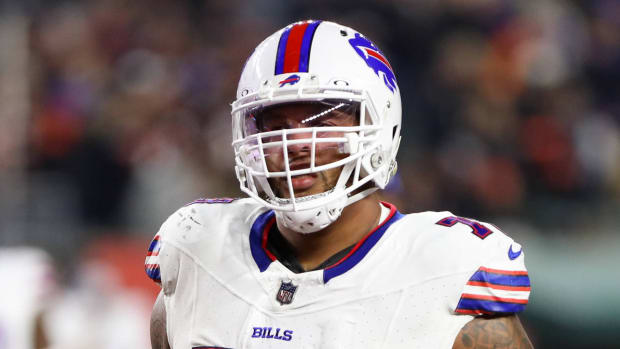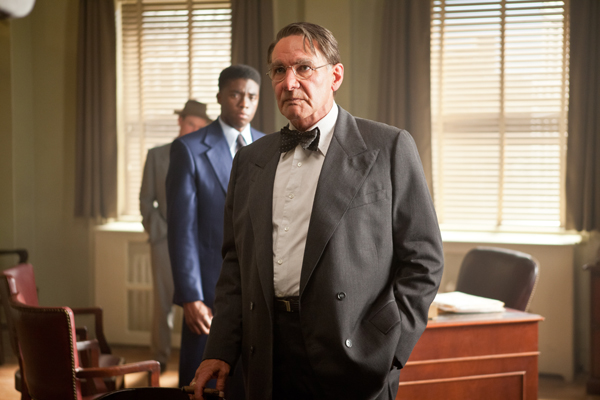
Harrison Ford Discusses Playing Branch Rickey In '42'
Courtesy of Warner Bros. Pictures
Harrison Ford is one of the most recognizable people on the planet. The actor behind such iconic characters as Han Solo and Indiana Jones has appeared in some of the most wildly popular films in history, including four—Star Wars, The Empire Strikes Back, Raiders of the Lost Ark and Blade Runner—that were selected for preservation in the National Film Registry in the Library of Congress.
Yet in 42, the biopic of Jackie Robinson that lands in theaters on Friday, the 70-year-old actor embraced a challenge he'd yet to tackle in his career: portraying a historical figure. Ford plays Branch Rickey, the trailblazing general manager of the Brooklyn Dodgers who broke Major League Baseball's color barrier with the signing of Robinson. I caught up with Ford this week to talk about the next stage of his career and the novel experience of transforming into a real-life character.
You've been at this acting thing for more than 45 years, and have made 64 films during that time. Yet you've never played an actual historical character. What kind of new challenges did that present?
Harrison Ford: I don't think there was any particular challenge to it at all. I'm from the "let's pretend" school of acting. It's not very complicated for me. I had a lot of material that I could use for research on Branch Rickey. There were a lot of things written about him and that he wrote. It makes it actually easier because there was so much background for the character. I didn't have to make much up. I thought it was a terrific script so it was clear what the job to be done by the character in any given scene. A good director and wonderful actors to worth: it was pure joy.
I've read that the film's director, Brian Helgeland, was reluctant to cast you as Rickey because he was afraid that people would only see Harrison Ford. How did you arrive at the idea of wearing the padding and makeup prosthetics?
It had been my idea to start with, I didn't come to it. I didn't want to contaminate the water by dragging people's experience with me in other movies into the film. It wasn't that kind of a role, so I didn't want to look like Harrison Ford or sound like Harrison Ford. It was just following through on my initial instinct.
Have you gotten any feedback on your performance from people who knew Rickey?
I have, from Hank Aaron to Branch Rickey III. A lot of people are still alive that knew him and nobody's slapped me across the face and called me a fool yet.
Courtesy of Warner Bros. Pictures
Rickey is shown as very much a pragmatist and capitalist in the film. Yes, he was doing what he thought was morally right, but he saw black players as a untapped resource, a market inefficiency, almost like the Moneyball of its time. How were you able to reconcile Rickey the altruist and Rickey the opportunist?
I didn't think there was a job to be done of reconciling. They are both honestly held feelings by Branch Rickey. I don't think one of them predominated over the other except emotionally. The experience that he relates with a young catcher when he was a player/coach at Ohio Wesleyan is a true story [ed's note: the racial injustice faced by Rickey's former teammate is cited as the inspiration for his longtime desire to integrate baseball] and I believe he was deeply affected by it at the time. I think both things are the true motivations that led him to do what he was doing.
For a lot of younger viewers, the idea that baseball would eventually become integrated might seem obvious. Did you sense an opportunity to introduce the Jackie Robinson story to a new generation?
Jackie Robinson's story is known and its celebrated, but I think that the opportunity of the film is to give the audience an emotional understanding and experience—where, because of their identification with the characters, they're able to feel what that bit of history was like such a short period of time ago. I think it will encourage young people—I hope it will encourage young people—to continue to do the work that's left undone in civil rights and in other aspects of freedoms and opportunity.
Are there other sports movies you're fond of?
I'm not much of a moviegoer, strange as it may seem. I probably don't know that many sports movies in particular. The last sports movie that I watched was to introduce my 12-year-old to The Bad News Bears with Walter Matthau.
Were you able to connect with the sporting element of the film or were you more drawn to the social themes?
I understood the character that I was playing through his affection for sport and his affection for the country. I think what we forget is that there was only baseball: there was no basketball, there was no football to speak of. Baseball was America's game. America was baseball and baseball was America. I do understand the thrill of the game. Having said that, I was never much of a sports fan growing up. But I think I know how to act one.
Courtesy of Warner Bros. Pictures



